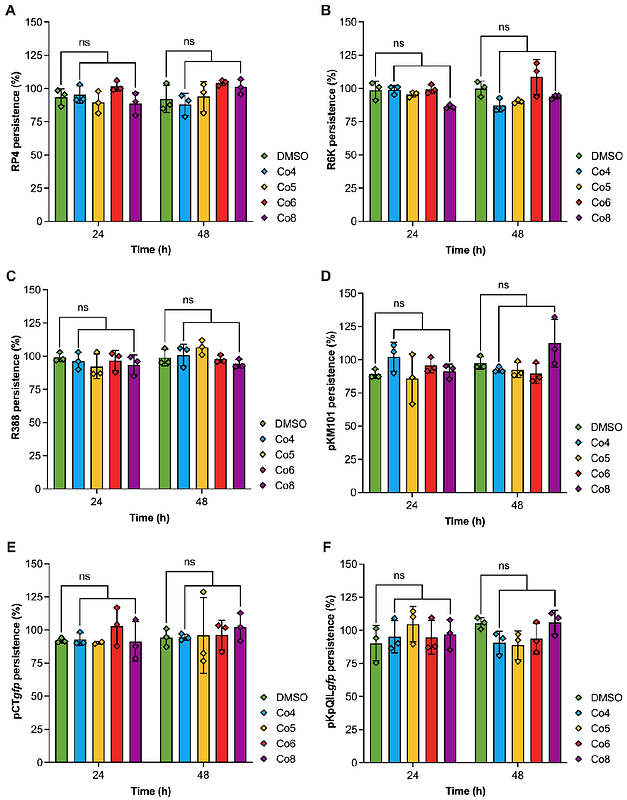Metal complexes and conjugation: Harnessing the power of cobalt complexes to curtail plasmid transfer

Metal complexes and conjugation: Harnessing the power of cobalt complexes to curtail plasmid transfer
Alav, I.; Pordelkhaki, P.; de Resende, P. E.; Partington, H.; Gibbons, S.; Lord, R.; Buckner, M. M. C.
AbstractBackground: Antimicrobial resistance genes (ARG), such as extended spectrum beta-lactamase (ESBL) and carbapenemase genes, are commonly carried on plasmids. Plasmids can transmit between bacteria, disseminate globally, and cause clinically important resistance. Therefore, targeting plasmids could reduce ARG prevalence, and restore the efficacy of existing antibiotics. Here, we assessed the effect of four previously characterised bis(N-picolinamido)cobalt(II) complexes on the conjugative transfer of plasmids in Escherichia coli and Klebsiella pneumoniae. Methods: Liquid broth and solid agar conjugation assays were used to measure complex activity on four plasmids in E. coli. Additionally, the effect of cobalt complexes was tested on the transmission of the fluorescently tagged extended spectrum beta-lactamase encoding pCTgfp plasmid in E. coli and carbapenemase encoding pKpQILgfp plasmid in K. pneumoniae, using flow cytometry. Results: Antimicrobial susceptibility testing of cobalt complexes revealed no antibacterial activity. The cobalt complexes significantly reduced conjugative transfer of RP4, R6K, and R388 plasmids on solid agar in E. coli and pKpQILgfp transmission in K. pneumoniae. None affected conjugative transfer of pKM101 or transmission of fluorescently tagged pCT in E. coli. The cobalt complexes had no effect on plasmid persistence, suggesting that they target conjugation rather than plasmid prevalence. Conclusions: To the best of our knowledge, this is the first study to report reduced transmission of clinically relevant plasmids with cobalt complexes. These cobalt complexes are not cytotoxic towards mammalian cells and are not antibacterial, therefore they could be optimised and employed as conjugation inhibitors to reduce prevalence of AMR and/or virulence genes in animals and humans.